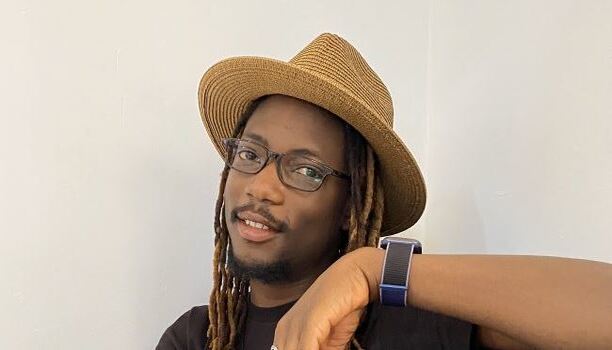By Bababunmi Agbebi
Edited by Sunkanmi Adewunmi
In recent days, Ezra Olubi, co-founder and former CTO of Paystack, has become the center of an intense public conversation: allegations of sexual misconduct involving a subordinate, and the resurfacing of decade-old tweets containing deeply troubling content. Paystack has since suspended him and launched a formal investigation.
This moment is important, not only for Paystack and its leadership, but for how Nigeria’s tech ecosystem and public discourse wrestle with power, morality, and forgiveness in a social-media age.
The Facts (So Far)
- According to Paystack, Olubi has been suspended pending the outcome of a formal investigation.
- The allegations that triggered the investigation emerged on social media.
- In parallel, a series of old tweets from Olubi dating back to around 2009–2013 have resurfaced. These posts reportedly include sexually explicit comments about colleagues, references to minors, and other deeply problematic content.
- Olubi’s X account has reportedly been deactivated.
- Paystack says its investigation will be “fair, transparent, and structured,” guided by the company’s values and policies.
- Some of the public backlash draws on accounts from former colleagues and others, raising broader questions about workplace culture, power imbalances, and long-term accountability.
Context Matters, But It Isn’t an Excuse
It’s tempting, especially on social media, to reduce this to a simple binary: guilt or innocence, predator or victim, cancel or support. But real life (and real people) are rarely so straightforward.
- Time and Change. Many of the tweets in question were posted more than a decade ago. People grow, change, and learn, but that doesn’t necessarily absolve past behavior. The fact that these are old posts doesn’t mean they should be ignored, especially if they raise serious ethical and legal concerns.
- Power Dynamics. The allegation involves a subordinate, which brings up the critical issue of power imbalance in the workplace. Even consensual relationships can be fraught when one person holds significant influence over another’s career. That dynamic must be carefully examined.
- Company Responsibility. Paystack’s decision to suspend Olubi and open an investigation is, at least on its face, a strong signal that even high-profile leaders are not above accountability. But the process must be credible; the public will rightly demand transparency, fairness, and protection for all parties involved.
- Social Media’s Role. The resurfacing of old tweets highlights how digital footprints never really disappear, and how social media can serve as a mirror for both personal behavior and public character.
Why the Conversation Is About More Than Just One Person
This is not just a controversy about one individual at a fintech company. It touches on larger issues that resonate far beyond Paystack:
- Workplace Culture in Nigeria’s Tech Sector. Nigeria’s tech industry is fast-moving and ambitious, but as it scales, it must confront the same ethical and structural challenges that mature economies face: harassment, abuse of power, and the need for robust internal systems to handle grievances.
- Public Accountability vs. Private Redemption. How do we balance accountability (especially for serious allegations) with the possibility of growth, learning, and reconciliation? Can someone make amends, and if so, how should that process look?
- The Role of Social Norms and Identity. Ezra Olubi has long challenged gender norms, his personal style and openness about non-conformity have inspired many. As such, some of the reaction may be influenced by bias (positive or negative) toward his identity. It’s crucial that this moment does not become a scapegoat for prejudice but also that identity is not weaponized to avoid real scrutiny.
One important principle in navigating this debate is humility: recognizing that people can have different thoughts, moral frameworks, and lived experiences and that having a different sexuality or gender expression is not inherently “weird” or bad.
- Diversity is Not a Liability. The fact that someone does not conform to traditional gender norms, or that they identify in a way that challenges social expectations, should not automatically cast doubt on their character or fitness.
- Opposition ≠ Homophobia. Criticism of behavior particularly serious allegations should not be conflated with attacks on someone’s sexuality. Conversely, defending someone should not mean ignoring legitimate concerns.
- Empathy Matters. As public conversation unfolds, it’s important to allow space for compassion, for possible victims, for the accused, and for the broader community grappling with what this means. We should demand truth and justice, but not abandon our capacity for understanding.
That said, there are real risks:
- Trial by Social Media. With much of the conversation happening on X and other platforms, there is a danger of misinformation, mob justice, and unverified claims.
- Bias and Prejudice. Responses could be tainted by homophobia, transphobia, or other biases especially if people conflate his personal identity with the allegations at hand.
- Insufficient Due Process. If the investigation is perceived as tokenistic or if it favors the company or its founder without true accountability that could erode public trust rather than build it.
A Call to the Public, to Paystack, and to Ezra Olubi
- To the Public: Let us continue to demand justice, transparency, and accountability but let us also avoid reducing the conversation to caricatures. Recognize the complexity, allow for nuance, and be wary of narratives that oversimplify.
- To Paystack: Conduct the investigation thoroughly. Communicate clearly. Protect confidentiality where necessary, but don’t hide critical outcomes. Set a precedent.
- To Ezra Olubi: If the allegations are true, take responsibility. Engage with the process. If you are innocent, clear your name but do so with humility and recognition of how power, influence, and your past digital footprint shape this moment.
The Ezra Olubi saga is not just a scandal, it is a test of how Nigeria’s tech ecosystem, and society more broadly, handles the difficult interplay of power, identity, and accountability. It offers an opportunity: not just for reckoning, but for growth. As following the developments, we should strive for a public dialogue that is firm in demanding truth, but generous in allowing for correction and transformation. After all, justice does not always require destruction, sometimes, it requires repair.









This Ezra Olubi saga is a masterclass in digital footprints colliding with career cliffs! Its fascinating how tweets from a decade ago become serious ethical and legal concerns overnight. The power dynamics in the workplace angle is particularly juicy. While we all evolve, shouldnt our old, perhaps less savory, online opinions have a private redemption pass sometimes? Lets hope Paystacks investigation isnt a tokenistic affair. And please, lets not confuse critiquing behavior with attacking identity – keep those bias detectors calibrated!毕竟, nuance is the spice of life, even if its harder to digest than cancelled tweets.